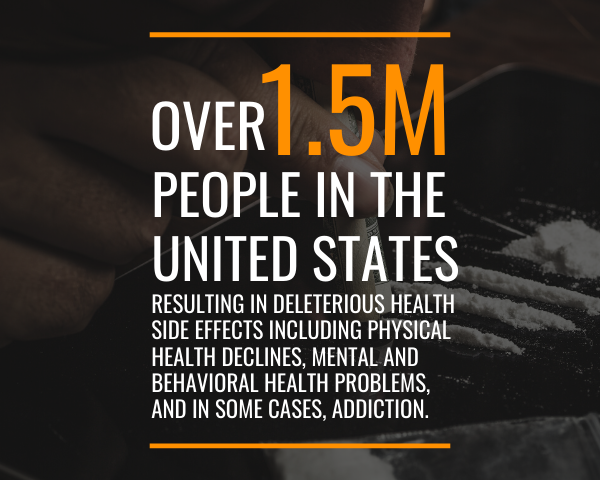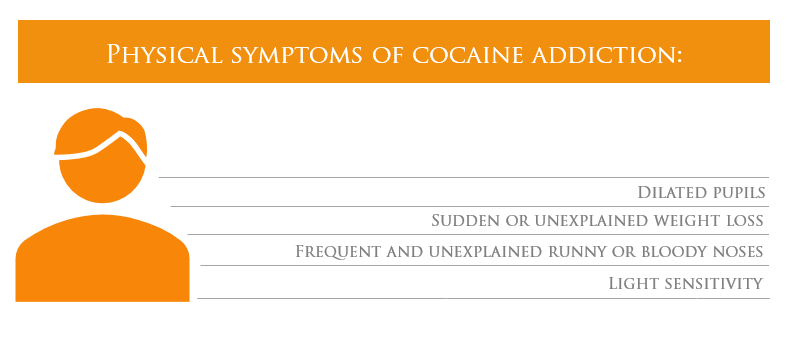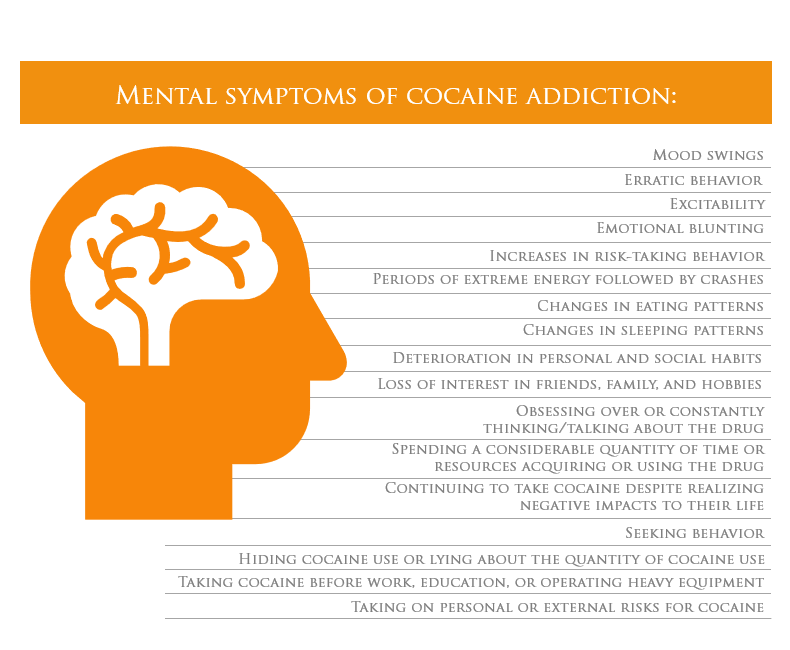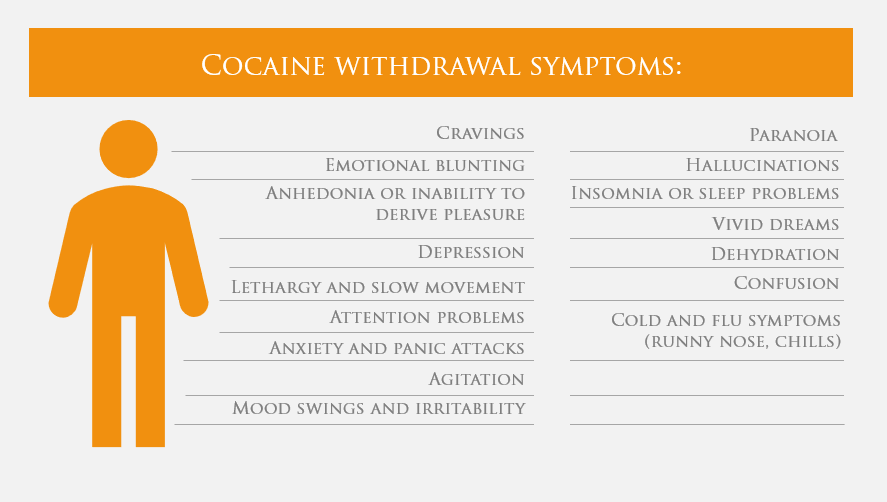
Cocaine is one of the most famous drugs in the world, popular for its association with the rich and famous, especially the public drug-using lifestyles of celebrities in the 80s and 90s. Today, it’s still abused by over 1.5 million people in the United States, resulting in deleterious health side effects including physical health declines, mental and behavioral health problems, and in some cases, addiction.
Cocaine abuse causes long-term health problems, impacting you or your loved one’s ability to live a healthy and happy life. If you’re using, getting into treatment and getting help is the first step to getting your life back.
The Gooden Center is a non-profit organization offering science-based addiction treatment, mental health treatment, and long-term follow-ups with free aftercare, forever.
Symptoms of Cocaine Addiction
Cocaine has a relatively light risk profile for addiction, but many people still become addicted. Here, both chemical dependence and behavioral addiction come into play, where users first develop tolerance, then chemical dependence, and then start to use the drug for behavioral reasons. These reasons might range from preventing a crash to continuing to feel good, but will eventually result in pathological seeking behavior, where the individual loses control of their drug use.
Cocaine is a stimulant, increasing levels of dopamine and serotonin in the brain for periods of about 30 minutes, after which effects fade, unless the individual takes another dose. Individuals who frequently use build up tolerance and need more and more frequent doses to maintain the same effects. So, the longer someone uses cocaine, the more they take, and the higher their chances of addiction. In addition, cocaine withdrawal can kick in even after a few uses. However, with mild symptoms, some users attribute these withdrawal symptoms to feeling down.


Cocaine users typically experience a pattern of highs and lows, where they feel physically and mentally on top of the world when high, followed by a crash. Here, users feel lethargic, like they have the flu, and feel emotional blunting, where they may struggle to feel anything at all. This pattern heavily encourages users to continue using in order to feel better or even feel normal, eventually resulting in behavioral reliance on the drug to feel better.
Most individuals with cocaine dependence issues also have issues with finances. However, this should not be a sole factor in determining cocaine addiction.
Cocaine Withdrawal
Cocaine users develop tolerance followed by chemical dependence meaning that many suffer from withdrawal symptoms. Here, withdrawal symptoms tend to be relatively light, while cravings, crashes, and long-term emotional blunting can be quite severe. Cravings are typically responsible for relapse, often long-after physical withdrawal symptoms have faded. For this reason, it’s important to seek out behavioral therapy to develop coping mechanisms for cravings.
Cocaine stimulates the central nervous system by inhibiting the reuptake of serotonin and dopamine. Therefore, withdrawal symptoms tend to be emotional, confusing, and mentally difficult rather than physically painful.

Most individuals are also at risk of dehydration, which can be dangerous and fatal in severe cases. Ensuring proper hydration during this period is critical. A small percentage of individuals are at risk of respiratory and cardiac problems.
Anyone with a history of heart problems should seek out medical attention during withdrawal.
Cocaine Addiction Treatment
Cocaine use disorder is a common problem and it requires medical treatment. If you or a loved one is struggling, there is help. The Gooden Center offers a complete cocaine addiction treatment program, personalized to the individual, and including science-based therapies like DBT, CBT, and ACT. We offer cocaine addiction treatment in Los Angeles and Pasadena, including behavioral therapy, counseling, group therapy, and full support for co-occurring disorders, stress management, learning coping mechanisms, and learning to live a healthy, happy life.

Drug abuse is often based on underlying disorders and problems. That’s why the Gooden Center focuses on delivering mental health treatment. We are, first and foremost, invested in helping you to build the mental foundations to live a happy life. That’s why we offer long-term aftercare, a full range of treatment tailored to your individual needs, and full support with everything you need during recovery.
